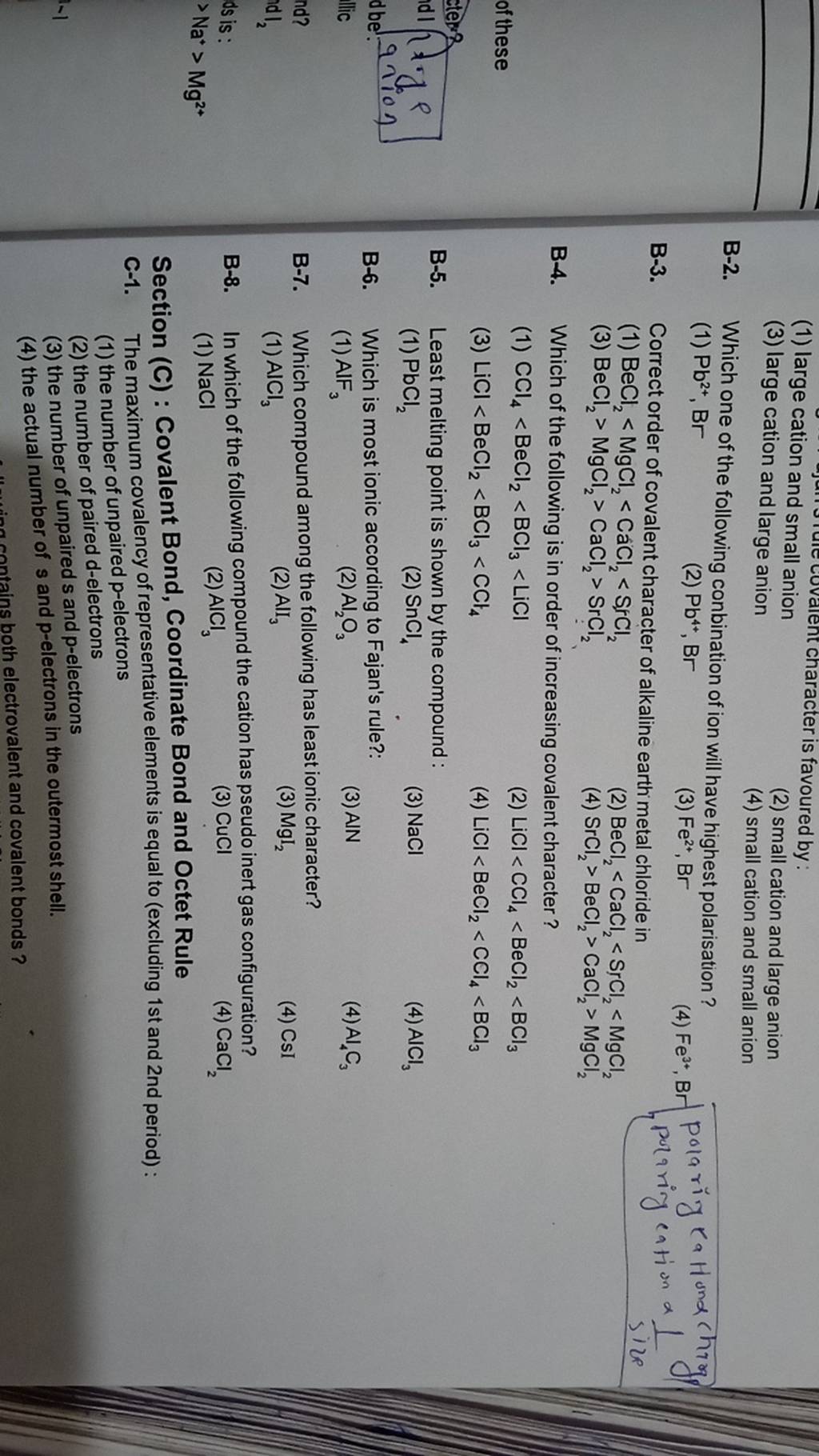Question
Question asked by Filo student
Section (C): Covalent Bond, Coordinate Bond and Octet Rule C-1. The maximum covalency of representative elements is equal to (excluding 1 st and 2 nd period) :
- the number of unpaired p-electrons
- the number of paired d-electrons
- the number of unpaired and -electrons
- the actual number of and -electrons in the outermost shell.

Video solutions (3)
Learn from their 1-to-1 discussion with Filo tutors.
20 mins
Uploaded on: 11/29/2022
Was this solution helpful?
126
Share
Report
9 mins
Uploaded on: 1/4/2023
Was this solution helpful?
76
Share
Report
Found 8 tutors discussing this question
Discuss this question LIVE
11 mins ago

One destination to cover all your homework and assignment needs
Learn Practice Revision Succeed

Instant 1:1 help, 24x7
60, 000+ Expert tutors

Textbook solutions
Big idea maths, McGraw-Hill Education etc

Essay review
Get expert feedback on your essay

Schedule classes
High dosage tutoring from Dedicated 3 experts
Practice more questions on Chemical Bonding
View moreStudents who ask this question also asked
Question 1
Views: 5,940
Question 2
Views: 5,709
Question 3
Views: 5,859
Question 4
Views: 5,882


Stuck on the question or explanation?
Connect with our Chemistry tutors online and get step by step solution of this question.
231 students are taking LIVE classes
| Question Text | Section (C): Covalent Bond, Coordinate Bond and Octet Rule C-1. The maximum covalency of representative elements is equal to (excluding 1 st and 2 nd period) : |
| Updated On | Jan 4, 2023 |
| Topic | Chemical Bonding |
| Subject | Chemistry |
| Class | Class 11 |
| Answer Type | Video solution: 3 |
| Upvotes | 264 |
| Avg. Video Duration | 14 min |
